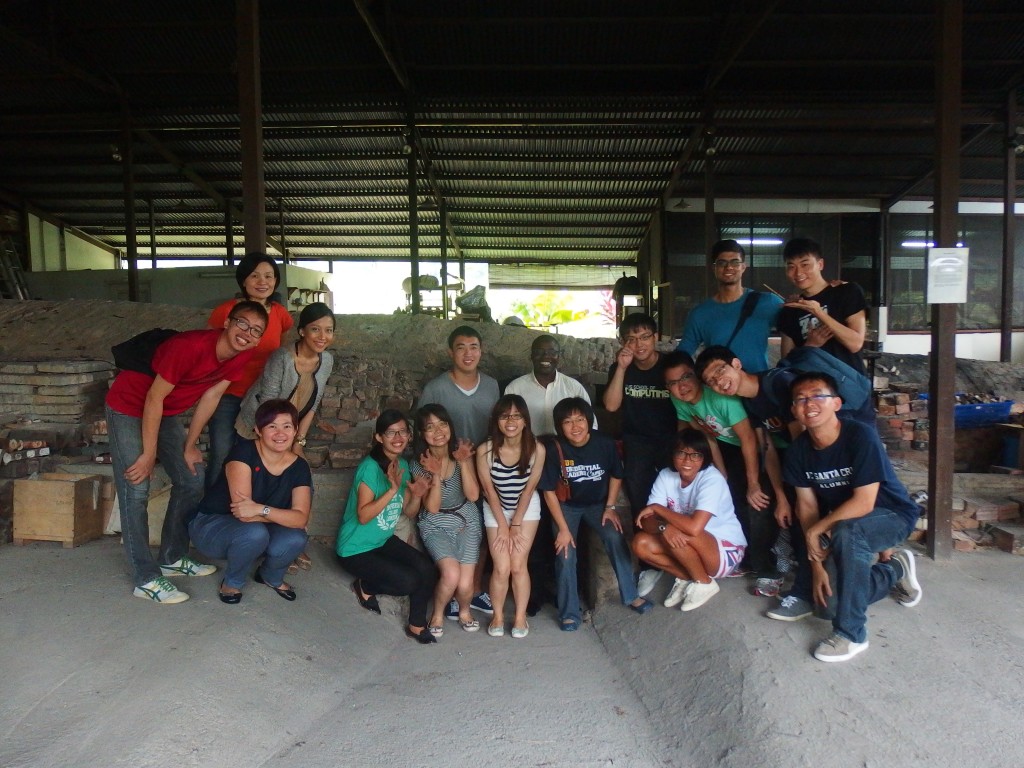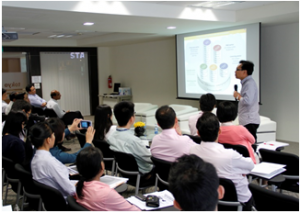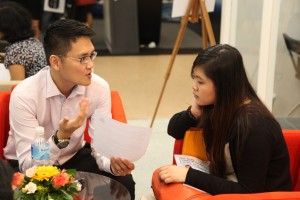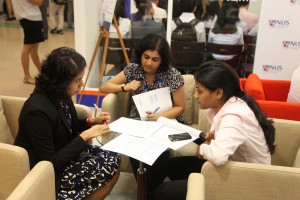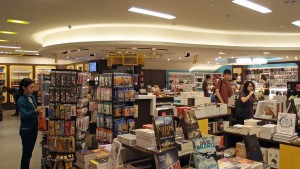For the majority of NUS students, the NUS educational journey is your final full-time educational pursuit before stepping into the working world. Our NUS degree programmes are designed to equip students with the breadth and depth of knowledge and skills for our graduates to embark on their careers. A robust disciplinary curriculum coupled with solid foundational training in the general skills of numeracy, reasoning, critical thinking, communication, personal and interpersonal effectiveness, will go a long way in equipping our graduates for their future jobs.
Beyond all that can be taught and learnt in an intellectually stimulating campus environment, it is not an exaggeration to say that there is no better way of learning about the working world, than by experiencing it first-hand. Several of our degree programmes have had integrated internships or workplace immersion programmes as part of their degree requirements for quite some time now, and with much success. Others, such as the Faculty of Engineering and School of Computing, have introduced internships for all students from the AY2014/15 cohort.
Given the learning value of internships or workplace immersion programmes, we can expect that internships will feature more prominently as part of the NUS education offering. For degree programmes with compulsory internship requirements, Departments will work closely with industry partners to design and curate workplace immersion programmes that integrate learning with training and workplace needs. Let me highlight a few examples.
In Medicine, throughout their undergraduate education, students have multiple opportunities to be fully integrated into existing healthcare teams in a clinical setting, and they learn from the teams they are attached to. Medicine students will undertake clinical rotations in Year 3 and 4, and this is considered a form of internship.
In Year 5, all final year students will go through the Student Internship Programme (SIP) as part of the course work for the MBBS programme, under which they are placed with different healthcare institutions in Singapore. The SIP comprises medicine and surgery tracks, and every student is required to complete postings in both tracks. The duration of each SIP attachment could vary from 2 to 8 weeks.
During the SIP attachments, students would be assessed on attributes such as their clinical skills, professionalism, as well as the ability to work in a team, communicate with patients and kin, and function within a healthcare institution.
At Pharmacy, all undergraduates read Professional Skills Development modules; these are practice-based, and aim to help students develop essential clinical and patient management skills. Students are assessed based on their achievement of competency in the relevant skill set. These modules will prepare them for the Pharmacy Internship and Final Year Project (FYP) in their final year of study. Year 4 students will go through two 12-week rotations in Community Care (e.g. Guardian, Unity, Watsons), and Indirect Patient Care (e.g. pharmaceutical companies, public sector regulatory bodies such as Health Sciences Authority) or Ambulatory Care (such as at community hospitals, polyclinic pharmacies). The satisfactory completion of the 24 weeks of internship can count towards the 12-month pre-registration training required by the Singapore Pharmacy Council to qualify to be a licensed pharmacist.
Apart from professional or specialised degree courses, general degree programmes are also increasingly incorporating internship stints. Take Social Work for example, which has introduced compulsory field placement. Field placement aims to provide students with the opportunity to integrate theories with practice, through the guidance of a qualified field supervisor. Students will take two compulsory 400-hours field placements during vacation time after completing Year 1 and Year 2. The emphasis for fieldwork is on the development of knowledge/skills to work with individuals, families, small groups and the community as well as within the agency context. Students apply theoretical and professional knowledge in different practice settings. They will have the opportunity to experience variety in their field practice though placements at organisations such as agencies for children & youth, agencies for older persons, agencies for the disabled, correctional settings, medical/health settings, family service centres and government organisations amongst others.
Apart from required internships, one interesting trend we have noticed is that students see the value of work experience, and they have been pursuing such opportunities on their own accord. In fact, the past few years has seen a sharp increase in the number of students pursuing voluntary internships. In AY2015/16, nearly 4,000 students went on voluntary internships.
There are also interesting initiatives by faculty members to create internship opportunities. Assoc Prof Ben Leong of the Department of Computer Science runs an informal programme for selected students through the Computing for Voluntary Welfare Organisations (CVWO) initiative, which he founded in 2007. CVWO seeks to build IT systems that help partner VWOs serve the community more effectively. Under this initiative, about 12-14 students annually would work on projects to revamp, redesign or develop computerised customer management systems for VWOs. The CVWO has worked on projects with VWOs such as The Lion Befrienders, Care Corner Counselling Centre, Fei Yue Community Services and the YMCA. Students selected to participate in the CVWO initiative will carry out projects with the CVWO for three months during the Special Term.
Students who have participated in the CVWO testify of how valuable it had been to gain work experience and to complete real projects early on in their degree journey (typically at the end of their first year). Many of them were able to land subsequent attachments with partners such as Facebook and Google.
All in all, I believe this move to create more opportunities to introduce students to the workplace and to allow students to immerse in and experience working life in an industry setting, is a positive one. It prepares you mentally, and gives you confidence to step into the working world as you make the transition from a student to an employee (or for some of you, an entrepreneur).
I would be happy to hear you relate your internship experiences.
